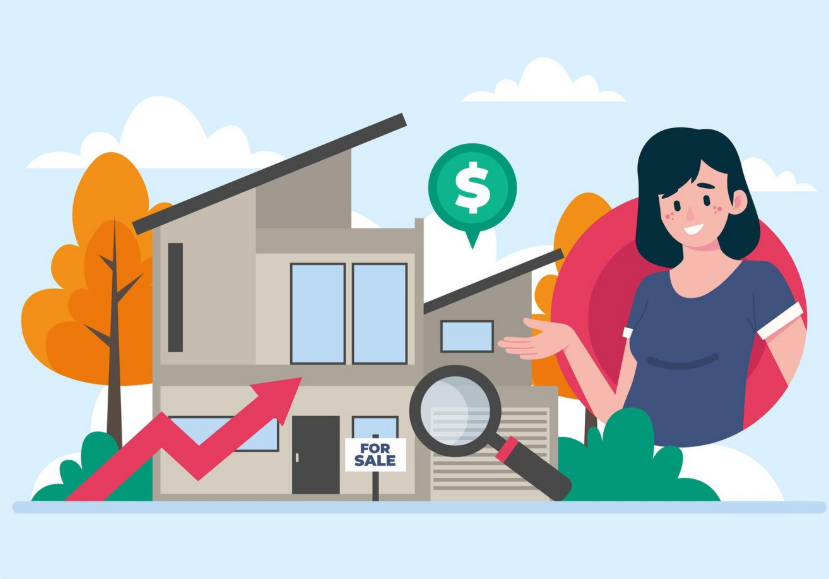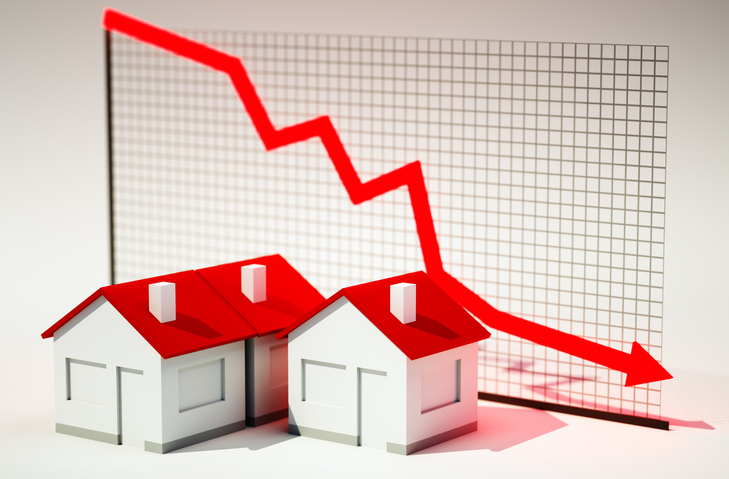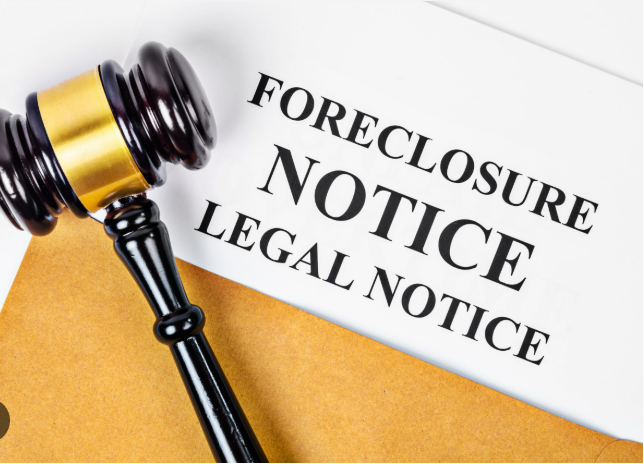Determining your Atlanta home’s value before selling in Atlanta is a critical step that can significantly impact your real estate success. Deciding on the right asking price can be tricky due to Atlanta’s unique market dynamics.
Whether you’re upgrading, downsizing, or relocating, knowing your property’s true market worth ensures you make informed decisions, decide on a competitive price, and avoid leaving money on the table. The Atlanta housing market, like any major metro area, has unique trends, buyer preferences, and neighborhood dynamics. Understanding how these factors affect your home’s valuation is essential to selling with confidence.
Atlanta’s home market is known for its high demand and fast-paced sales, making it essential for sellers to stand out from the competition. Buyers in Atlanta are often drawn to properties that combine strong curb appeal with modern designs and cost-effective features. To maximize your home’s value and attract more buyers, it’s important to understand what today’s buyers are looking for and how you can strategically upgrade your property. Simple improvements, such as enhancing your home’s exterior, updating key living spaces, and refinishing cabinets, can make a significant difference in how your home is perceived and how quickly it sells. By staying informed about current market trends and focusing on upgrades that offer the most value, you can position your home to sell for the best possible price in Atlanta’s competitive real estate market.
Understanding Market Conditions in Atlanta
Before estimating your home value before selling to potential buyers , it’s essential to consider Atlanta’s broader real estate landscape. The city has experienced steady population growth, driven by a robust job market, a vibrant cultural scene, and relatively affordable living costs compared to other major cities. Neighborhoods like Buckhead, Midtown, and Virginia-Highland offer high demand, while emerging areas such as West End and Kirkwood are drawing new buyers. Sellers can expect increased buyer activity and potentially higher pricing during peak seasons, while off-peak times may bring fewer showings and more negotiation on price.
Home values in Atlanta can fluctuate based on seasonality, interest rates, and economic factors. Spring and early summer tend to be peak selling seasons, with increased buyer competition often pushing prices higher, which leads to faster sales and higher sale prices. Conversely, winter may see a slower pace and more conservative pricing. Being aware of these trends helps you better time your sale, account for closing costs, and maximize your return.
Start with Online Home Valuation Tools
A practical first step to estimating your home value before selling is utilizing online valuation tools. These platforms use algorithms based on recent sales, tax assessments, and neighborhood comps to provide a rough estimate. Websites like Zillow, Redfin, and Realtor.com allow homeowners to input their property details and receive an instant valuation. These tools provide an estimated value in dollars, which can help homeowners get a sense of their property’s worth.
While these tools offer a convenient starting point, their accuracy can vary. They don’t always account for unique features or recent upgrades, which means the true dollar value of these improvements may not be reflected. Additionally, they rely heavily on publicly available data. Use these valuations as a ballpark figure rather than a definitive market price.
Analyze Comparable Home Sales (Comps)
To refine your understanding of your home’s value before selling in Atlanta, dive deeper into comparable home sales, commonly known as “comps.” Comps are properties similar to your house in size, style, location, and condition that have recently sold in your neighborhood. Comparing the square footage of your house to similar properties is essential for accurate valuation. Analyzing comps helps determine what buyers are actually willing to pay for homes like yours.
You can find comps through real estate websites or work with a local real estate agent who can provide access to the Multiple Listing Service (MLS). Focus on houses sold within the past three to six months that have similar square footage and features, as this provides a more precise comparison. Pay attention to price per square foot, days on market, and sale-to-list price ratios to gauge competitiveness.
Hire a Local Real Estate Agent
Partnering with a knowledgeable Atlanta real estate agent is one of the most effective ways to determine your home value before selling. A seasoned agent brings in-depth local market expertise and access to up-to-date sales data. They can perform a Comparative Market Analysis (CMA), a comprehensive report that evaluates recent sales, active listings, and pending sales to provide a data-driven valuation.
An agent can also walk through your property and assess factors that impact value, such as curb appeal, interior upgrades, layout functionality, and overall condition. Their insight helps you price your home strategically, factoring in bathroom upgrades and reducing the risk of overpricing (which can deter buyers) or underpricing (which can leave money on the table).
Consider a Professional Appraisal
For a more formal and objective valuation, hiring a licensed appraiser is another option. An appraisal involves a thorough on-site inspection and a detailed analysis of comparable properties. The appraiser considers the home’s condition, improvements, location, and market trends to arrive at a fair market value.
While an appraisal typically costs between $300 and $500, it can be a worthwhile investment, especially if you have a unique property or are unsure about pricing. Appraisals are often required by lenders during the mortgage process, but they can also serve as a solid benchmark for sellers who want an unbiased assessment.
Evaluate Home Improvements and Condition
Home improvement projects and overall condition play a significant role in determining home value before selling. Updates such as refinishing cabinets, replacing doors, and enhancing the lawn can significantly boost your home’s appeal and home’s appearance. Renovations such as updated kitchens, modern bathrooms, new roofing, energy-efficient windows, and fresh paint can further increase your property’s appeal and justify a higher asking price.
However, not all upgrades yield equal returns. Don’t forget small updates like replacing outdated fixtures, switches, or outlets, as these can have a big impact. Investing in the right improvements can lead to more money at sale and some of the highest returns, especially when focusing on curb appeal and key features like front doors and garage doors. While the cheapest option may seem appealing, it’s important to balance cost with quality to maximize ROI. Focus on improvements that align with buyer expectations in your Atlanta neighborhood. Thoughtful home improvements can enhance not only your home’s value but also your quality of life while living there. For instance, open-concept layouts, hardwood floors, and outdoor living spaces are highly desirable in many local markets. On the other hand, overly customized features may not appeal to all buyers and could limit your pool of prospects.
Exterior Home Improvements That Boost Value
The exterior of your home is the first thing potential buyers see, and making the right improvements can dramatically increase your property’s value and appeal. Start by boosting curb appeal with fresh paint, a fresh coat of which instantly refreshes your home’s appearance and creates a welcoming impression. Upgrading light fixtures and replacing your front door with a modern, stylish option are cost-effective ways to add character and security. For homeowners looking to save money in the long run and attract eco-conscious buyers, installing solar panels is a smart investment that can lower utility bills and increase your home’s value. These strategic upgrades not only enhance your home’s look but also signal to buyers that the property has been well cared for, making it more likely to attract multiple offers and sell quickly.
Energy Efficiency and Cost Savings
Today’s buyers are increasingly interested in homes that offer energy efficiency and long-term cost savings. Upgrading to energy-efficient appliances, replacing outdated windows, and adding insulation are all improvements that can lower utility bills and create a more comfortable living space. These cost-effective investments not only make your home more appealing to buyers but can also lead to higher returns when it’s time to sell. Highlighting these features in your listing can set your property apart in the Atlanta market, attracting buyers who value both sustainability and savings. By focusing on energy efficiency, you’re not just improving your home—you’re making a smart investment that pays off at closing.
Understand the Impact of Location
Location remains one of the most influential factors in home valuation. Even within Atlanta, different neighborhoods can see vastly different price points. Proximity to top-rated schools, public transportation, shopping districts, and recreational amenities can significantly increase your home’s desirability and value.
Crime rates, school district ratings, and future development plans also affect buyer interest. Homes in walkable neighborhoods or those close to business hubs like Downtown or Tech Square often command premium prices. Understanding how your specific location contributes to your home’s value provides important context for your pricing strategy.
Stay Informed on Economic and Interest Rate Trends
Wider economic factors and interest rate fluctuations influence buyer behavior and market activity. Low mortgage rates generally stimulate demand, while rising rates can cool it down; for example, keep an eye on Federal Reserve announcements . Keep an eye on Federal Reserve announcements, employment trends, and housing supply levels to anticipate how these shifts might impact your home’s market value.
In 2025, for example, Atlanta’s market remains competitive, but slight increases in interest rates have begun to moderate demand. Sellers should remain flexible and work closely with their agents to adjust pricing if needed.
Monitor Active Listings and Buyer Behavior
Assessing current active listings provides insight into your competition and helps refine your home value before selling. Look at homes with similar attributes in your neighborhood—what are they listed for, how long have they been on the market, and are they receiving price reductions?
Understanding the buyer’s perspective is crucial; by aligning your pricing and marketing strategies with what buyers value most, you can position your home to sell faster in a competitive market.
Buyer behavior also matters. Are open houses well-attended? Are bidding wars common? If homes are selling quickly and above list price, you might have more pricing power. Conversely, a buyer’s market may require more aggressive pricing and incentives to stand out.
Home Staging and Decoration Tips
Effective home staging and thoughtful decoration can make a significant impact on your home sale. Start by decluttering and depersonalizing each house to create a sense of space that allows buyers to envision themselves living there. A fresh coat of paint in neutral tones can brighten up your home and make it feel more modern. Upgrading cabinets and adding new light fixtures can further enhance your home’s appearance, while focusing on bathroom upgrades—such as replacing vanities, faucets, or lighting—can add value and appeal. These strategic upgrades help your home stand out, attract more buyers, and lead to a faster, more profitable sale. By investing in these improvements, you create a welcoming atmosphere that resonates with buyers and maximizes your home’s value.
Final Preparations for Selling
As you get ready to list your Atlanta home, paying attention to the final details can make all the difference in achieving a successful sale. Setting a competitive asking price is crucial—work with a trusted realtor who understands the local market to ensure your home is priced to attract more buyers while maximizing your return. Be prepared for closing costs and potential negotiations, and make sure your home is in top condition by investing in strategic upgrades and home improvements that appeal to today’s buyers. By staying proactive and informed, you can navigate the selling process with confidence, save money minimize stress, and secure the best possible outcome for your home sale in Atlanta’s dynamic real estate market.
Use Emotional Intelligence in Pricing
Pricing your home involves both data and intuition. While objective metrics are critical, it’s also important to put yourself in the buyer’s shoes. Ask yourself what features make your home special, what first impression it creates, and whether your price point aligns with perceived value.
An emotionally intelligent approach to pricing helps build buyer trust and engagement. A well-priced home generates excitement, multiple offers, and a faster sale. On the other hand, a poorly priced home can linger, resulting in price reductions and lower final offers.
Conclusion
Determining your home value before selling in Atlanta involves a combination of technology, expert guidance, market analysis, and thoughtful evaluation to establish a fair market value . From online tools and neighborhood comps to professional appraisals and agent insights, each step builds a clearer picture of what your property is truly worth.
In a diverse and dynamic market like Atlanta, preparation is key. Sellers who take the time to assess their home’s value accurately are better positioned to attract qualified buyers, negotiate effectively, and achieve a successful sale. Don’t leave money on the table or risk a stagnant listing—know your value, price strategically, and sell with confidence.




